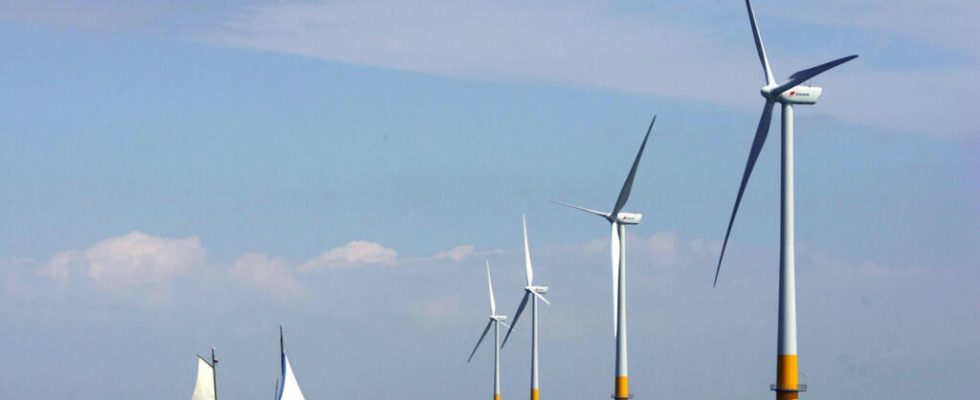US President Joe Biden this week defended the results of his mega-plan for the energy transition. It has been a year, on August 16, 2023, since the IRA, the Inflation Reduction Act, was signed by the US President. A $750 billion program. Plan whose tenant of the White House went to praise the merits in a factory that is awash in orders for wind turbines. Despite everything, wind energy has encountered some disappointments, and not only in the United States.
3 mins
In Europe, the Swedish group Vattenfall has put an end to the development of a project off the coast of the United Kingdom. The shutdown of the Norfolk Boreas, which was to be one of the largest offshore wind farms in the country, has dampened British ambitions in renewables.
According to several media, Avangrid, a subsidiary of Iberdrola, also broke an agreement to sell electricity for a wind program off the coast of Massachusetts. And BloombergNEF estimates nearly 10 gigawatts of offshore wind projects awaiting renegotiation or cancellation of acquisition agreements in the United States.
In France, last November, Shell gave up a pilot project for floating wind turbines off Belle-Île-en-mer.
Compromised profitability
Each project obviously has its own specificities and difficulties, but a general trend emerges: that of profitability affected by the economic situation. Vattenfall’s managing director, Anna Borg, made this clear to AFP: conditions are extremely difficult in the area “. Because of a ” supply chain under pressure “. The projects are also much more expensive to implement than expected. Inflation which is explained by several factors: the increase in the price of raw materials, the increase in the cost of transport. Even silver is more expensive. The significant rise in interest rates – although intended to limit inflation – makes investments more expensive. Indeed, for the same amount borrowed, it will be necessary to repay more than before.
A danger that awaits wind projects, not necessarily offshore, in France too. However, according to a specialized lawyer, it is not possible, in France in any case, to renegotiate the contracts awarded by invitation to tender on a case-by-case basis. VSis a generic solution that must be found.
New projects indexed to price inflation
However, this does not mean that wind power is doomed. ” These are points of vigilance, but the dynamic is still there », nuance Alexandre Roesch, general delegate of the Syndicat des Energies Renouvelables. “When you look at the latest figures, if you look for example at the onshore wind tender, the very last tender that closed a few weeks ago, the government had called for 925 megawatts of projects. Eventually, 1,200 were accepted. Therefore, the sector is able to deliver “, highlights Alexandre Roesch. And to explain: In France, the difficulties mainly relate to projects which had been successful before the crisis and which had therefore secured their economic model on fundamentals which were those of the pre-crisis period. But future projects are now indexed. The winners, when they presented themselves for the call for tenders, took into account the evolution of the courses of the interest rates, the prices of the raw materials, so normally, it is a phenomenon which is now reabsorbed “.
Alexandre Roesch is not alone in maintaining confidence in wind power. An investment fund also notes an improvement in the situation and ensures that it is ” manageable “.
Read alsoEnergy: record global oil demand in 2023
